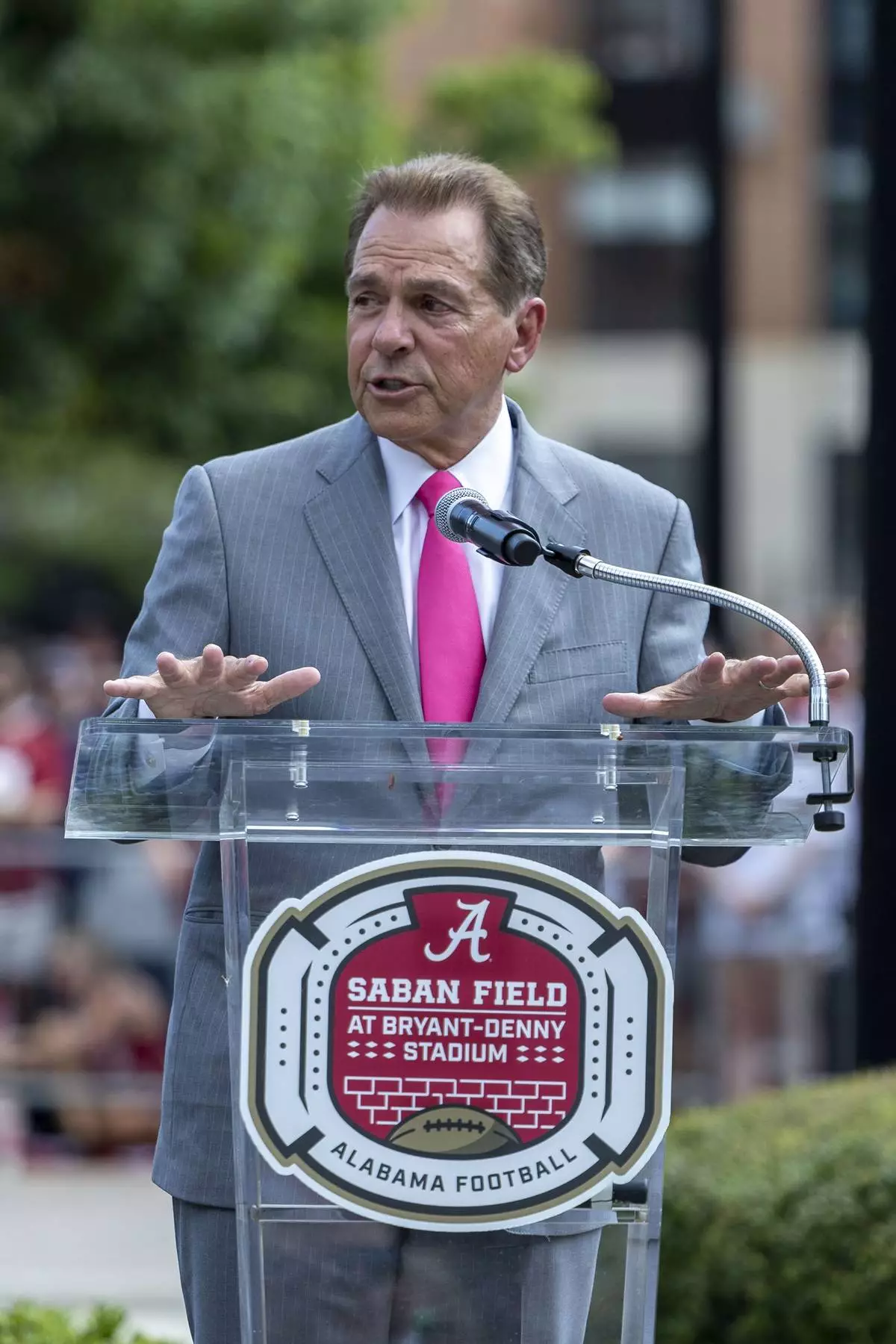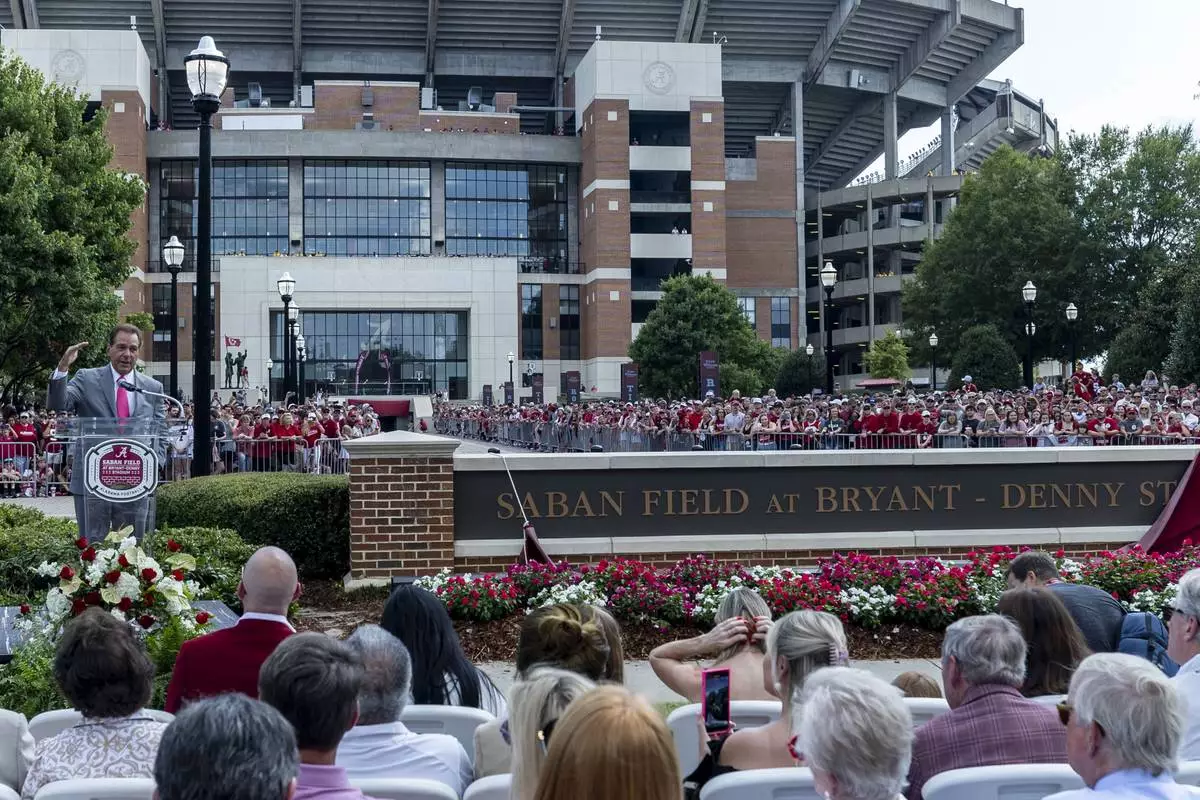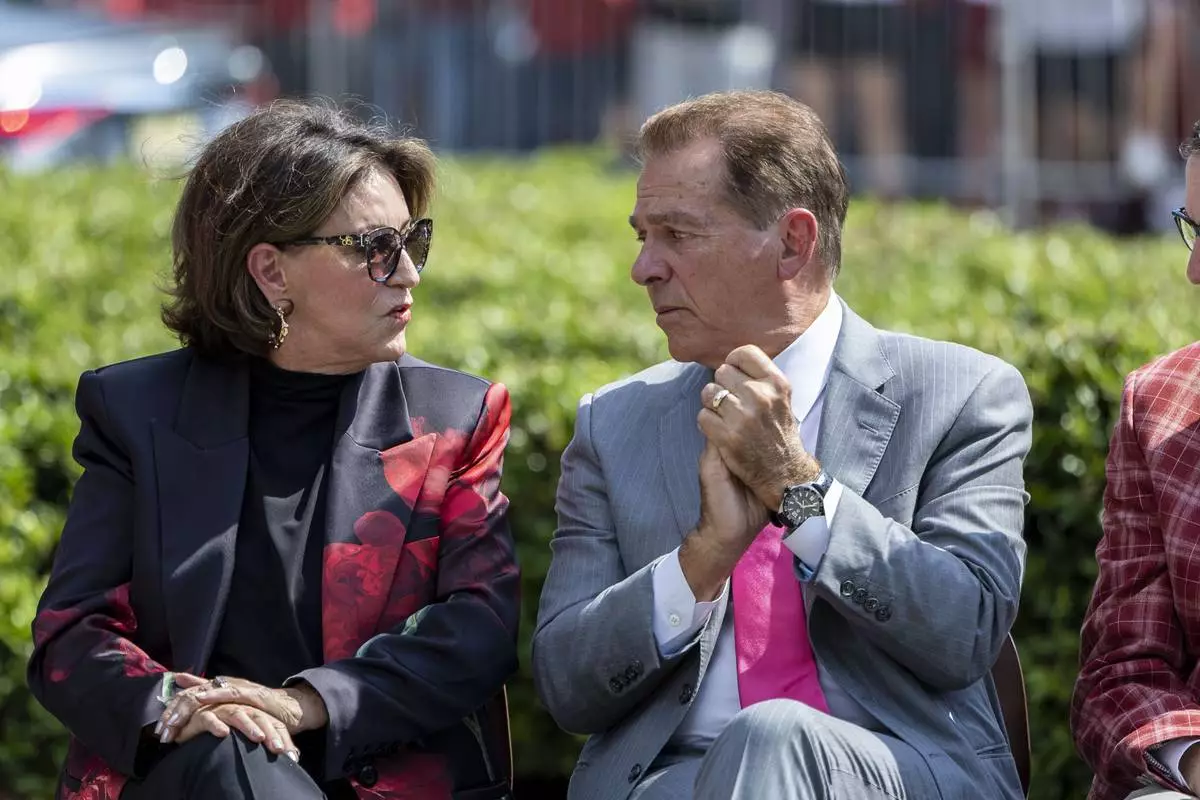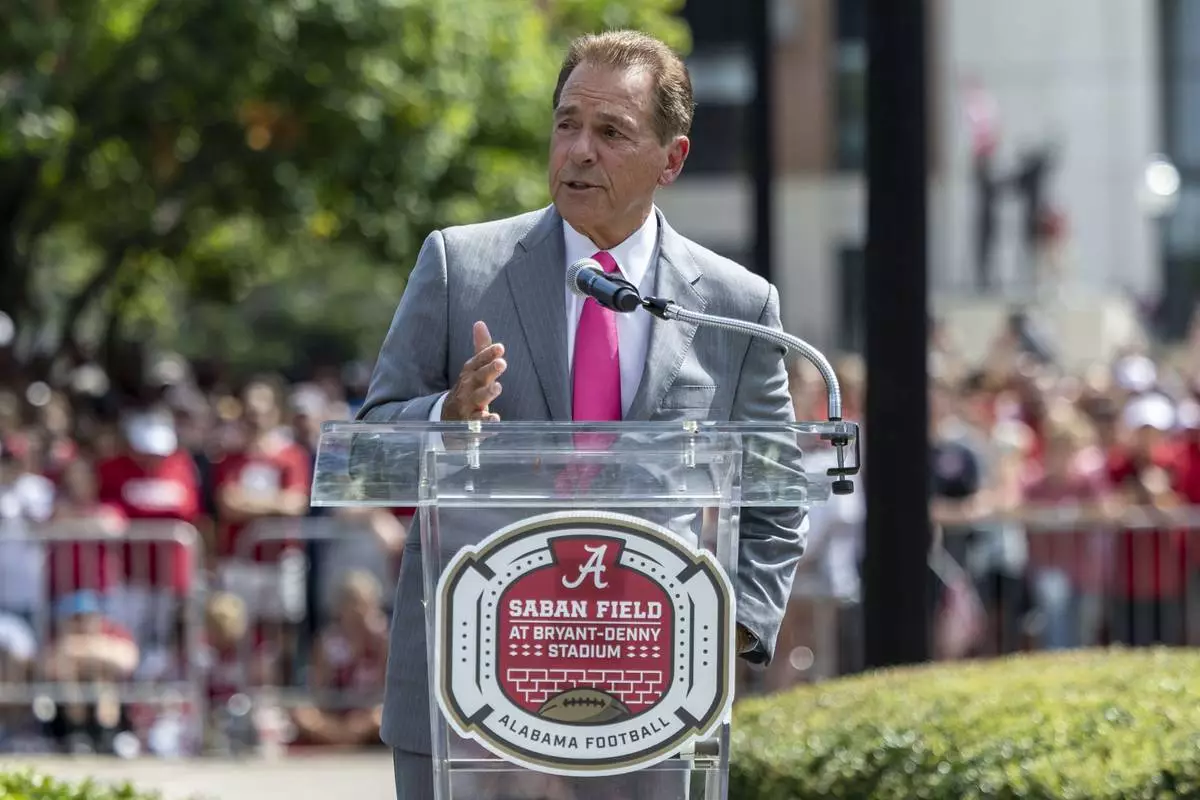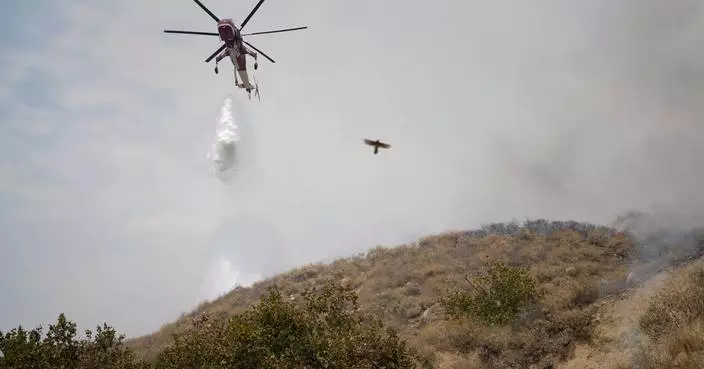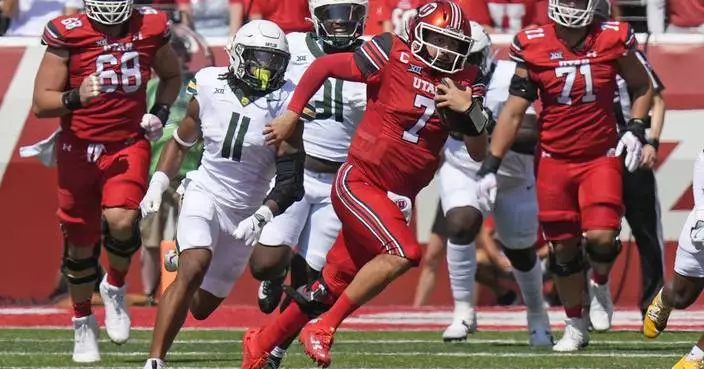PHOENIX (AP) — Ismael “El Mayo” Zambada, the top leader and co-founder of Mexico's Sinaloa cartel, eluded the reach of U.S. law enforcement for decades as the criminal organization evolved into the world's biggest manufacturer and smuggler of illicit fentanyl pills and other drugs to the United States.
Zambada, 76, once ran the cartel in partnership with the flashier and better-known kingpin Joaquín “El Chapo” Guzmán Loera, who is serving a life sentence in a U.S. prison.
Zambada and Guzmán’s son, Joaquín Guzmán López, were arrested in Texas on Thursday after they arrived aboard a private plane. Zambada was being held without bond Friday after entering a plea of not guilty to a string of drug trafficking charges in federal court in El Paso.
Zambada has been charged in numerous U.S. cases, including one filed in February in the Eastern District of New York accusing him of conspiring to manufacture and distribute fentanyl. Prosecutors said he led “one of the most violent and powerful drug trafficking organizations in the world.”
Born in 1948 in the western state of Sinaloa, Zambada has been widely known by his nickname “El Mayo,” short for Ismael.
Zambada is believed to have started his criminal career as an enforcer back in the 1970s. He later emerged as a major figure in the Juarez cartel until its top leader, Miguel Angel Felix Gallardo, was arrested in 1989 in the kidnapping and killing of U.S. drug agent Enrique “Kiki” Camarena by drug traffickers on Mexican soil.
The Juarez organization splintered and Zambada joined forces with “El Chapo” Guzmán, helping transform what was a regional smuggling syndicate into the far-reaching Sinaloa cartel.
For decades Zambada has been the cartel’s strategist and deal broker overseeing day-to-day operations, protecting the enterprise by avoiding a flamboyant lifestyle and eschewing the most gruesome violence. He used largesse to earn the loyalty of locals in Sinaloa, where kingpins have long been immortalized in ballads called “narcocorridos.”
“He has been like the George Washington of dope in Mexico. A huge figure,” said Elaine Shannon, a U.S. journalist and author who first heard about Zambada in the mid-1980s when she was writing her book about Camarena’s 1985 killing: “Desperados: Latin Druglords, U.S. Lawmen, and the War America Can’t Win.”
The U.S. government had offered a reward of up to $15 million for information leading to Zambada’s arrest.
The most lucrative trade now is fentanyl, much of it pressed into pills at large-scale operations south of the border involving professional chemists. U.S. Customs and Border Protection officials say most fentanyl is smuggled into the country through official ports of entry, typically in large trucks carrying manufactured goods or produce.
Once focused mostly on marijuana and cocaine, the cartel has diversified over the years to meet consumer demand. Along with fentanyl, it also smuggles Mexican-produced methamphetamine, heroin made from Mexican-grown opium poppies and small amounts of lower-grade marijuana for parts of the U.S. where pot has not been legalized.
Zambada oversaw the trafficking of “tens of thousands of pounds of drugs into the United States, along with related violence,” FBI Director Christopher Wray said.
In its 2024 National Drug Threat Assessment, the Drug Enforcement Agency calls fentanyl the most urgent drug threat in the U.S. and says it and other synthetic opioids were responsible for about 70% of the 107,941 fatal overdoses in the country in 2022.
“The Justice Department will not rest until every single cartel leader, member, and associate responsible for poisoning our communities is held accountable,” Attorney General Merrick Garland said in a statement after the arrests.
U.S. officials also blame the Sinaloa organization for much of the migrant smuggling from Mexico into the United States. Record numbers of people have arrived at the border this year, something that has become a major issue in the presidential election.
The son of “El Chapo” Guzmán, who was arrested with Zambada in Texas, is considered one of the lower-profile sons in the family.
A more prominent son, Ovidio Guzmán López, also is in U.S. custody and pleaded not guilty to drug trafficking charges in Chicago in September.
Meanwhile, a son of “El Mayo,” Ismael Zambada Imperial, pleaded guilty in U.S. federal court in San Diego in 2021 to being a leader in the Sinaloa cartel.
President Andrés Manuel López Obrador said Friday that Mexico was still awaiting details about the arrests and was not involved in the operation.
The country's drug kingpins have long had influence inside all levels of the Mexican government, reputedly bribing governors and even entire police forces to look the other way.
Now that Zambada is behind bars, Shannon said, many powerful people in Mexico will be concerned that in a bid for a more comfortable deal, he could cooperate with U.S. authorities and accuse them of collaborating with the cartels.
“They’ve all got to be worried,” she said. “He has paid off literally generations of Mexican politicians. He knows where all the skeletons are buried, more skeletons than Dia de los Muertos.”

A look at 'El Mayo' Zambada, the kingpin of Mexico's Sinaloa drug cartel who is now in US custody
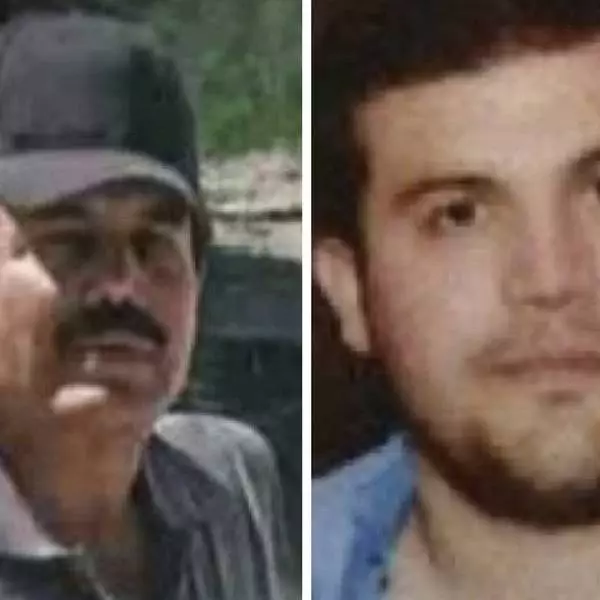
A look at 'El Mayo' Zambada, the kingpin of Mexico's Sinaloa drug cartel who is now in US custody
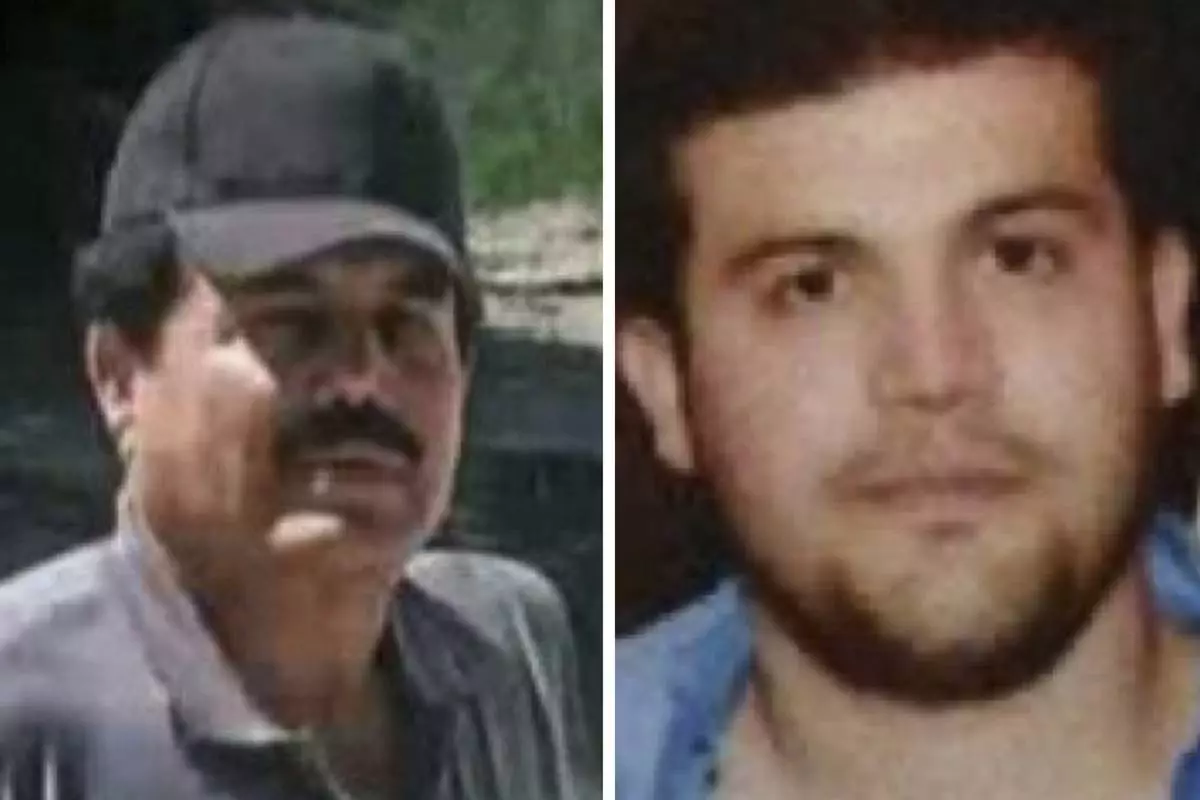
This combo of images provided by the U.S. Department of State show Ismael “El Mayo” Zambada, a historic leader of Mexico’s Sinaloa cartel, left, and Joaquín Guzmán López, a son of another infamous cartel leader, after they were arrested by U.S. authorities in Texas, the U.S. Justice Department said Thursday, July 25, 2024. (U.S. Department of State via AP)



